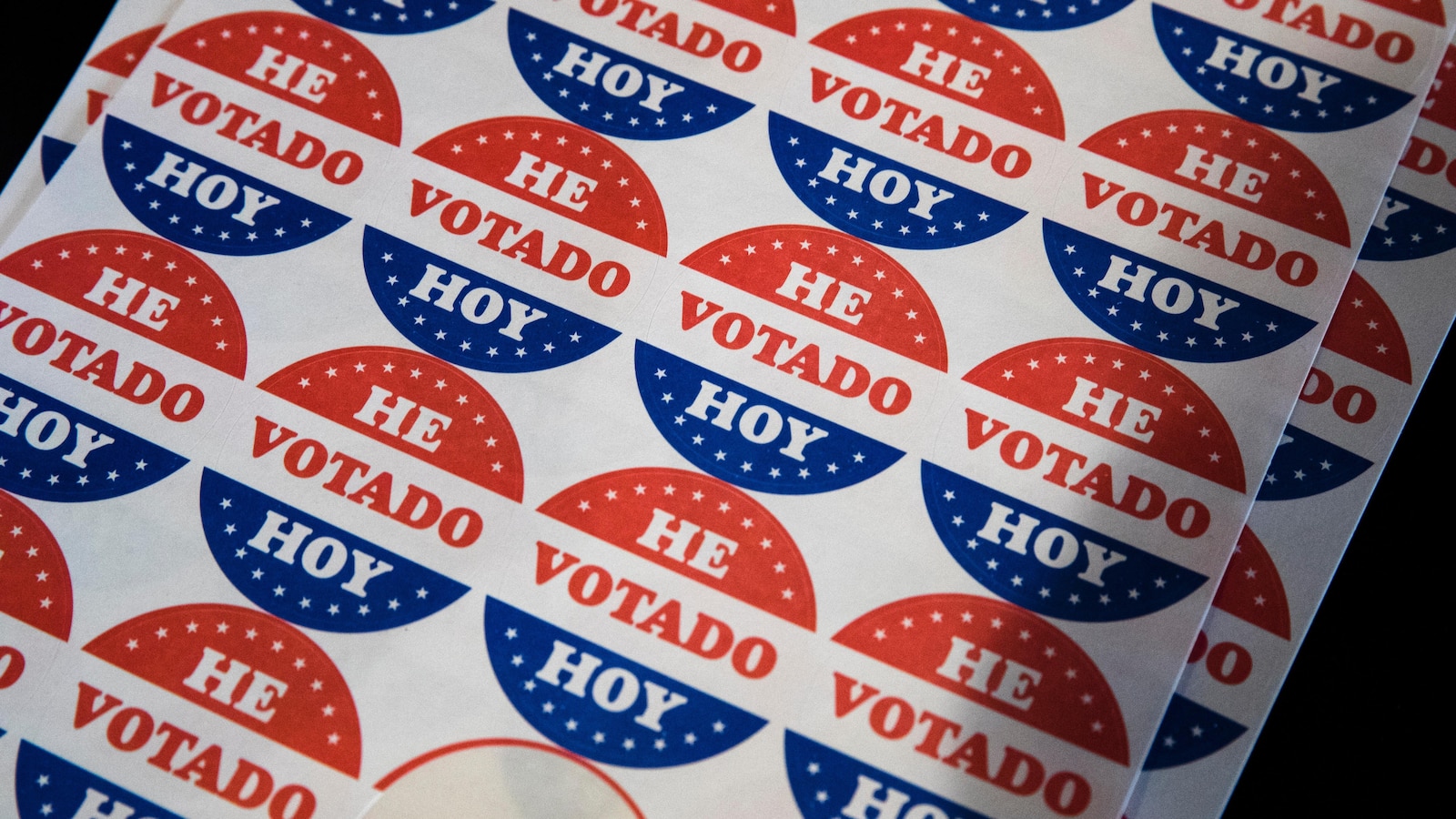A recent analysis by two nonprofit news organizations, Proof News and Factchequeado, in collaboration with the Institute for Advanced Study’s Laboratory for Science, Technology, and Social Values, revealed that AI models are producing election-related misinformation at alarming rates. The findings indicate that misinformation is generated more frequently in Spanish than in English, raising significant concerns for one of the fastest-growing and increasingly influential voting blocs in the country.
Voting rights advocates fear that AI models may exacerbate existing information inequalities among Spanish-speaking voters, who receive substantial support from both Democrats and Republicans. Vice President Kamala Harris is set to hold a rally in Las Vegas with singer Jennifer Lopez and the Mexican band Maná. Meanwhile, former President Donald Trump hosted an event in Pennsylvania’s Hispanic community just two days after a speaker made derogatory remarks about Puerto Rico at a New York rally.
The analysis found that over half of the election-related responses generated in Spanish contained misinformation, compared to 43% of responses in English. Notably, Meta’s Llama 3 model, which powers AI assistants within WhatsApp and Facebook Messenger, performed poorly in the tests, with nearly two-thirds of its Spanish responses containing inaccuracies. In contrast, about half of the responses in English were incorrect.
For instance, when asked what it means to be a “federal-only” voter, Meta’s AI erroneously claimed that such voters are those residing in U.S. territories like Puerto Rico or Guam, who cannot vote in presidential elections. This misinterpretation failed to acknowledge that in Arizona, such voters typically lack citizenship proof due to the registration forms they used.
Anthropic’s Claude model also fared poorly, directing users to contact election officials in countries like Mexico and Venezuela instead of addressing the question directly. Google’s Gemini AI also produced misleading responses, offering a nonsensical answer when asked to define the Electoral College, referencing “vote manipulation.”
In response to these findings, Meta spokesperson Tracey Clayton stated that Llama 3 was intended for developers to build other products and emphasized that the company trains its models according to safety and responsibility guidelines to mitigate the risk of spreading false information about voting. Alex Sandeford, head of policy and enforcement at Anthropic, noted that the company has made adjustments to better address Spanish-language inquiries, aiming to direct users to official sources on voting issues. Google did not respond to requests for comment.
Voting rights advocates have been warning for months that Spanish-speaking voters are encountering misinformation from online sources and AI models. Lidia Guzmán, leading a voter advocacy campaign at Chicanos por la Causa, stated that the new analysis provides further evidence that voters must be cautious about where they obtain election information. She stressed the importance of conducting thorough research from multiple credible organizations to ensure the accuracy of information.
Large language models trained on vast amounts of content from the internet generate AI-generated answers, but they can still produce illogical responses. Even if Spanish-speaking voters are not directly using chatbots, they may encounter AI models when utilizing dependent tools, apps, or websites. These inaccuracies could have significant implications in states with large Hispanic populations, such as Arizona, Nevada, Florida, and California.
In California, nearly one-third of all eligible voters are Latino, and one in five eligible Latino voters speaks only Spanish, according to research from UCLA’s Latino Policy and Politics Institute. Romel Lopez, a paralegal in California who identifies as an independent thinker with multiple social media accounts, uses OpenAI’s ChatGPT to verify unfounded claims, such as those regarding immigrants eating pets. He noted the surprising number of varied responses he encountered online, some of which were AI-generated, ultimately relying on his general knowledge to navigate the information.
Lopez stated, “We can rely on technology, but not 100 percent. After all, they are machines.”
This story is part of the Associated Press series “The AI Campaign,” exploring the impact of artificial intelligence in the 2024 election cycle.
The Associated Press receives financial support from the Omidyar Network to enhance its coverage of artificial intelligence and its societal impact. AP is solely responsible for all content. To learn more about AP’s standards for working with funders and the areas of funded coverage, visit AP.org.

